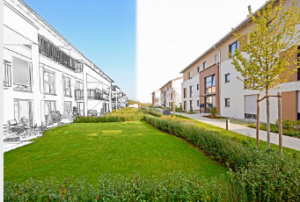Commercial property development involves taking a piece of land and developing it into a space that businesses can use. It can include turning a large house into an apartment complex or building a new warehouse.
There are a few things to remember in a leading commercial property development Adelaide. The process can be lengthy, and it is important to plan carefully.
 Site Selection
Site Selection
The site selection process is a critical step in determining the success of any commercial property development project. It can minimize risks, maximize operational efficiency and support long-term business sustainability. A successful location strategy will also enhance economic development and community growth. In this article, we will discuss the basics of site selection, how to select the best sites for commercial real estate development and why it is important to choose the right partners for the project.
Once the team has narrowed down the list of possibilities, it will need to conduct further analysis to select two to three finalists. This analysis should consider labour market scalability, headcount requirements, infrastructure needs, capital investment costs, logistics, real estate costs, utility rates and business climate.
Feasibility Study
A feasibility study is a critical step in the commercial property development process. It provides an accurate assessment of the project’s profitability and potential risks. It also helps identify ways to mitigate those risks. In addition, it can help save valuable time and money in the long run.
A leading commercial property development Adelaide can be very costly and requires a lot of capital investment. A feasibility study will give you a clear idea of the amount of capital required and its sources. Having this report in hand will help you make more informed decisions and reduce the risk of investing your funds. It will also help you make the right choice in terms of the size and structure of the project.
This study will examine the current state of the real estate market in the area, including demographics, land use regulations, and economic indicators. The study will also assess the availability of water, sewer, and other infrastructure in the area. It will also provide a comprehensive analysis of the project site, including site surveys, zoning laws, and land development costs. The study will also analyze the construction and maintenance costs and projected income for the real estate project. It will also include a sensitivity analysis, which examines how changes in individual variables impact the project’s feasibility.
Whether you are planning to build a shopping mall, office building or a residential complex, it is important to conduct a feasibility study before starting the project. The feasibility study will determine the viability of the project and will help you plan for future developments. It will also assist you in securing funding for the project. Moreover, the feasibility study will help you avoid costly mistakes that may derail your project.
Negotiation
A successful commercial property development requires a solid understanding of the market and negotiation skills. Developers often hire expert negotiators to help them get the best value for their projects. A skilled negotiator can make the difference between a project that makes money and one that loses money.
Construction
When many people think of commercial property development, they imagine the construction of a brand-new building on an empty lot. While new construction does fall under the category of commercial property development, it also includes rehabilitating or restoring existing structures. Repurposing or restoring existing buildings for different purposes is sometimes called “adaptive reuse.” This process can be a great alternative to new construction.
Before construction begins, a leading commercial property development Adelaide will often work with architects and engineers to develop plans for the structure. This planning phase will include determining the best way to maximize space and how to connect the building to existing infrastructure. The developers will also look at other factors, such as zoning requirements and potential environmental concerns. They will also use these plans to prepare for the construction phase by obtaining necessary permits and approvals from local governments and utility companies.
